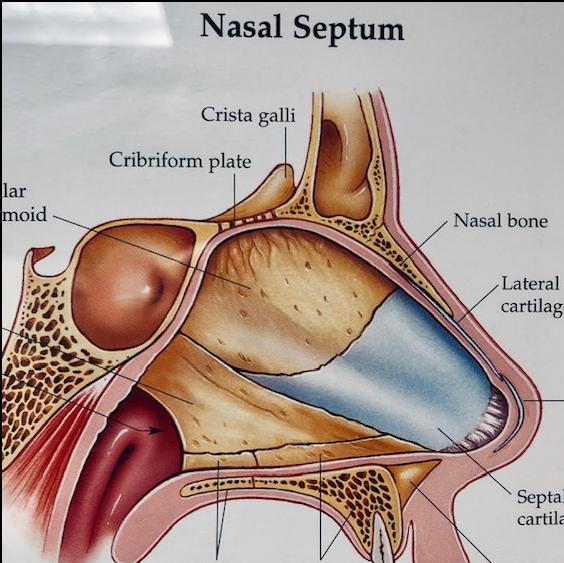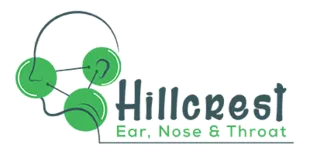
"I can't breath out of my nose" is a common complaint I see day after day. Most patients have done a trial of allergy nasal sprays or pills by the time they get to an ENT doctor. There are several other reasons why you may not be able to breath through your nose that have nothing to do with allergies. Also, you are not limited to having one problem with the nose. Often a few things contribute to poor function. Here is a list of some of the most common reasons you can't breath through your nose.
1. Inferior turbinate hypertrophy. The inferior turbinates project off the lateral wall of your nose and provide most of the resistance to airflow. They also heat and humidify the air you breath. The inferior turbinates are small bones surrounded by venous tissue. The turbinates actually shrink and enlarge about every 4 hours in what is called the nasal cycle. One is big and the other small, and then it reverses. Patients that don't have enough room to breath in their nose will actually notice that the congestion goes back and forth with the nasal cycle. Enlarged inferior turbinates can usually be treated with intranasal steroids like flonase, but sometimes require a very minor procedure to shrink them down.
2. Nasal septal deviation. The nose is divided down the middle by the nasal septum which is made of cartilage in the front and bone in the back. The septum provides structural support to the nose. The nasal septum can get knocked out of place though trauma (think ball to the face as a kid) or you can just be born with a deviated septum. The septum can be crooked so that in blocks one side in the front and the other side in the back. A deviated septum will not usually get better with medications and requires a short surgery to fix. Most insurances cover nasal surgery to improve breathing.
3. Nasal fracture. If your nose looks crooked on the outside, chances are that it is crooked on the inside. I have a lot of experience re-breaking the nose in the operating room to get it straight on the outside AND the inside. Again, insurance usually covers this type of surgery on the nose to get you breathing better (and looking straighter).
4. Nasal valve collapse. If you take a deep breath through your nose while looking in the mirror and you see your nostrils close, you likely have nasal valve collapse. What is happening here is the fast airflow creates a low pressure zone in your nose, which causes the side walls to collapse. You will especially have problems with running or other hard exercise. There are a couple ways to fix this with minor procedures. Medicine will usually not fix this.
5. Nasal polyps. More common in people with allergies. The lining of your nose, when extremely inflamed, will produce grape like cysts that fill up the spaces in your nose and sinuses. The hallmarks of this condition are nasal congestion and an altered sense of smell. Patients will also develop sinusitis. This is a tough condition to treat that usually involves allergy therapy, sometimes surgery as well.
6. Sinusitis. Facial pressure, thick mucous drainage down the back of your nose, fever and nasal congestion. Often caused by allergies or an upper respiratory infection. This can be an acute problem lasting just a few weeks or become chronic and last months to years. There are medical and surgical treatments for this condition.
7. Allegic rhinitis (allergies). I have to mention that sometimes it is allergies that causes nasal congestion. Allergies are your body's immune system overreacting to things in the environment like dust, pollen or animals. The allergen causes a chemical reaction that ultimately results in inflammation and swelling of the lining of your nose. We can set you up with allergy testing and therapy if need be. Also, if the medications don't work for you, there are procedures that can help.
If you have any or more than one of the conditions, I recommend making an appointment. We will talk with you about your symptoms, perform and endoscopic exam of your nose and sinuses (which doesn't hurt) and perform a CT scan of the sinuses all on your first visit. We can get you diagnosed and treated on your very first appointment.
Take care!
Brent R. Driskill, M.D.
Hillcrest Ear, Nose & Throat.
